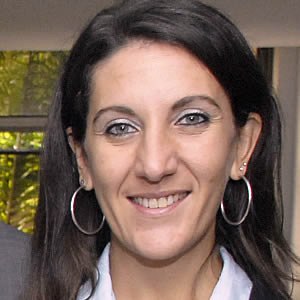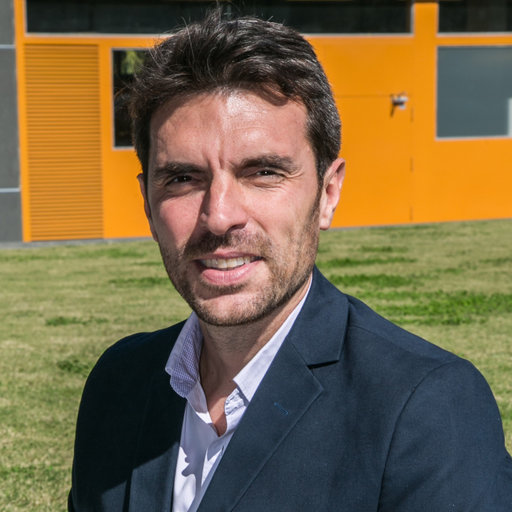Director: Santiago Gini
Duration
March through December
Timetable
Wednesdays
from 18:30 to 20:30
Format
100% online
Questions
REGISTRATION ALWAYS OPEN

Digital Technologies Law (DTD, ex-DITC) is a program which objective is to train professionals from different disciplines in the most relevant and current legal and public policy issues for companies, organizations and consultants working in the Internet, digital technology and telecommunications industry.
During 2024, the 10th edition of a program that updates its contents will take place to include the challenges posed by an ever-changing topic, which has increasingly deeper impacts on the economy, the State, and the social and political life.
What makes DTD distinctive?
This program, a pioneer in the country, is part of the activities of CETyS, a center specialized in the development of digital processes in Latin America. In addition, unlike other post-graduate courses, the DTD combines technological knowledge with legal, economic rules and a cross-disciplinary approach.
Who it is aimed at?
The program is aimed at lawyers, economists, technologists, public relations experts, public policy staff, among others.
What contents does it include?
(2023 modules)
Delivered by Santiago Gini
Course objectives:
- To introduce digital technologies law based on the concepts of neutrality and convergence.
- To deal with the legal issues of Internet intermediaries.
- To analyze online contracts issues.
- To understand the convergence from a corporate vision and from the current tax framework.
Delivered by Óscar González
Course objectives:
- To address the main aspects related to network infrastructure regulations as a key element of convergent communication services and Internet.
- To make a distinction between network infrastructure regulation and the contents and applications that are part of convergent communications and Internet.
- To recognize the main basic concepts of regulation, to briefly review its historic developments as well as the new trends and challenges brought up by the Internet on this subject.
- To analyze some specific instruments of network infrastructure regulation, in particular, their scarce resources, the relations among service providers and among providers and consumers.
Delivered by Santiago Mora
Course objectives:
- To learn and understand the new scenarios, the new businesses, and the new formulations of already existing businesses that have been springing up thanks to the financial innovation over the last years.
- To study the risks and conflicts arising from the financial innovation in each business scheme.
- To identify and distinguish the reactions of law to this new context, both in the local sphere and in the international sphere.
- To simulate several of the scenarios and conflicts that have arisen, as well as several procedures established by law in relation to the issues analyzed.
- To criticize the position adopted by law and to propose alternative views.
Delivered by Daniela Dupuy
The course tackles the phenomenon of virtual crime, the applicable legislation, the difficulties arising during research, the need for legislative modifications, as well as the reactive and proactive measures to fight this kind of crimes. The human factor and the role of different sectors, both public and private throughout the whole program, will also be analyzed in order to spark the debate on the best practices for the use of information and communications technologies (TIC).
In addition to the domestic and international criminal legal framework related to cybercrime, the course will cover the technological concepts used nowadays which are related to the controls and audits that should be conducted from a cybersecurity perspective. On the other hand, it will analyze topics related to digital evidence and electronic proof in criminal proceedings together with the scope of the forensic analysis and the records that can be obtained from both public and private Internet service providers.
Delivered by J. Darío Veltani
The course provides tools for the intervention in different aspects related to artificial intelligence and algorithmic governance: either in the design of policies and legislation, in the creation of company policies or in the work environment. The program is aimed at people working in the fields of Law, Systems Engineering, Communications, members of public agencies and intergovernmental or supranational bodies, company consultants, teachers, researchers, among others.
Although a great deal of what will be analyzed in this course may seem to be science fiction, it is a reality and a problem that can be seen daily in all the areas of the industry: from self-driven cars, to algorithms that perform the job of thousands of humans automatically and more efficiently.
Delivered by Santiago Gini
The course introduces intellectual property, its new challenges and a brief historic review; copyrights; trademark law; domain names and technical aspects; the recent European Union regulation, among other relevant topics on this matter.
Delivered by Tomás Balmaceda y Karina Pedace
Information philosophy has become a key research field, which typically has a critical approach on the conceptual nature and the basic principles of information, its use and dynamics, as well as the application of these reflections and tools to tackle philosophical problems.
The course objectives are:
- To analyze the concept of information as an omnipresent concept in society, to understand its scope and unresolved problems.
- To study the concepts of information, homos digitalis and its ramifications in philosophical anthropology and in technology philosophy: the debate between post-humanists, trans-humanists, and bio-conservatives.
- To review Descartes and Turing’s challenge
- To understand the concepts of natural intelligence and artificial intelligence: technology, information processing and the challenge of the “extended” mind.
Delivered by Fernanda Viecens
The objective of the course is to introduce the tools of economic analysis applied to competition law and policy. This will allow the development of a critical perspective of merger cases and anti-competitive behavior in Argentina, the region and globally.
Part of the course is devoted to the current debate taking place in the international sphere on major players in the digital economy.
Delivered by Marcela Pallero, Jorge Litvin and guests
The objective of the course is to introduce the problem of cybersecurity from a technological perspective, processes in both private and public organizations, and its legal, economic and geopolitical aspects.
Among several relevant topics, the course will deal with:
- Different perspectives of cybersecurity.
- The origin of the problems associated with it from a technological perspective.
- The international assessment models for countries.
- The relevance of the “Response to incidents”.
- Prevention from national and international regulation on data protection. – The possibility to have an insurance.
- Practical cases of technology use to know what happened in an incident.
Option to take single modules
In order to obtain the DTD certificate the whole program from the beginning of the year must be taken. However, it is possible to take modules individually, on their corresponding date.
*The fee to register for individual modules is not proportional to the registration fee for the whole DTD program.
To express your interest in any of the modules, please contact cetys@udesa.edu.ar.
Upcoming courses
Who delivers the DTD courses?

Balmaceda,
Tomás
PhD in Philosophy. Philosophy of Technology

Delle Donne,
Carla
Economic Criminality and Asset Laundering Attorney’s Office Area of Crimes against the public administration

Dupuy,
Daniela
Coordinating Prosecutor of the Specialized Unit in Computer Crimes and Misdemeanor of the Public Prosecutor’s Office of CABA

Gini,
Santiago
Professor of Internet and Telecommunications Law and Contract Law at University of San Andrés, and DTD Program Director

González,
Oscar
Consultant and Lawyer specialized in Telecommunications, ICTs & Digital Economy

Litvin,
Jorge
Legal and Compliance Director at Resguarda. Cybersecurity Professor

Mora,
Santiago
Partner at GPG Advisory Partners. Director and professor of Fintech Law programs, at UDESA, UTDT and UBA

Palazzi,
Pablo
Partner at Allende y Brea, Co-director at CETyS and PDP Program Director

Pallero,
Marcela
Teacher and Security Analyst at BCRA

Pedace,
Karina
PhD in Philosophy

Vallés,
Santiago
Director of the Computer Engineering Department at ITBA

Veltani, J. Darío
Partner at AVOA – Abogados. Professor of Artificial Intelligence and Law

Viecens,
Fernanda
PhD in Economics. Researcher at CONICET and CETyS

Mantegna,
Micaela
Professor of Artificial Intelligence Law and Copyright. Research affiliate at BKC Harvard
More information: cetys@udesa.edu.ar


